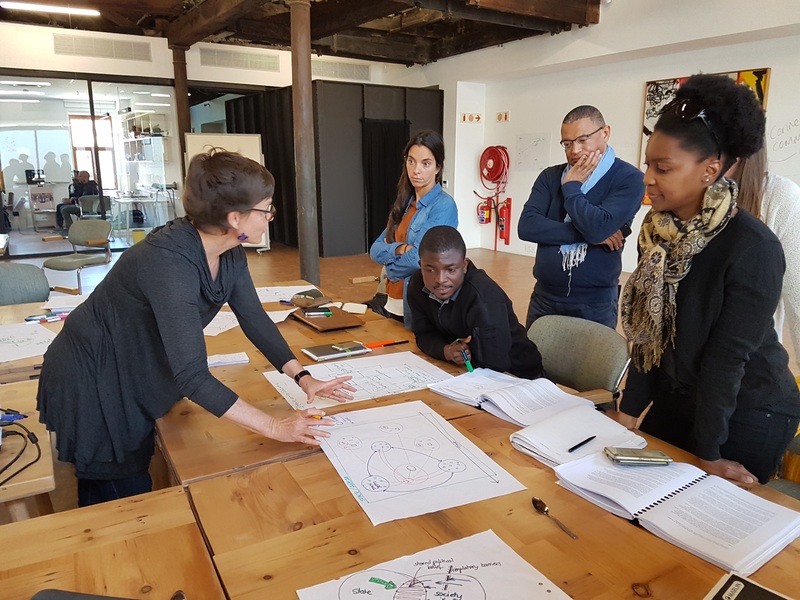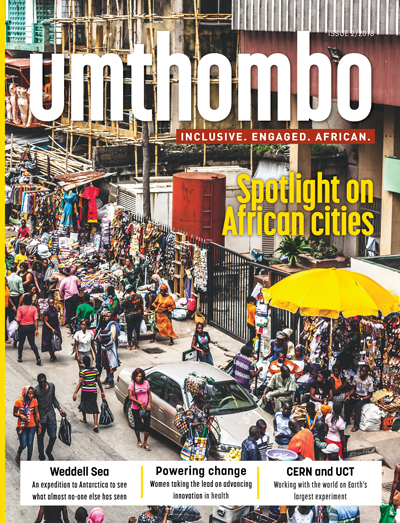A new cohort of African urban scholars
01 November 2018 | Story Ambre Nicolson. Photo supplied. Read time 4 min.
This year marks the first intake of students in the African Centre for Cities’ (ACC) master’s degree in Southern Urbanism. The two-year course will not only provide students with a grounding in the realities, theories and practise of cities of the global south, it also aims to create a new generation of African urban scholars.
Between now and 2060, 86% of growth in the world’s urban population will take place in cities in Africa and Asia. This mass migration of people will bring with it a host of new environmental, economic and social challenges.
“If these challenges are to be understood, we require a new generation of urban scholars. One with a thorough understanding of the realities of theory and practice in cities of the global south.
“The new MPhil in Southern Urbanism hopes to help create this new cohort of urban scholars,” explains, Dr António Tomás who designed the two-year course alongside Professor Edgar Pieterse and Professor Sophie Oldfield.
“We see this moment as an unprecedented opportunity to question what we mean by urban scholarship and rigour, and to fashion alternative ways of being researchers and teachers...”
Speaking at the launch of the programme, Pieterse said: “We see this moment as an unprecedented opportunity to question what we mean by urban scholarship and rigour, and to fashion alternative ways of being researchers and teachers. This exploratory project demands a conscious effort to grow an ambitious cohort of black urbanists willing to equip themselves to build a new kind of urban studies, rooted in the realities and desires of the global south.”
The degree combines a strong foundation in urban theory with an experimental approach to research. In the first year of study it is compulsory for students to participate in a City Research Studio. “This is a laboratory space in which students will learn to walk, see, smell, touch, embrace, explore and reimagine the city through intimate engagements mediated by diverse research techniques,” explains Oldfield.
The MPhil in Southern Urbanism has a relationship with the University of Basel’s master’s in Critical Urbanisms. As part of the Basel degree, students spend a semester in Cape Town alongside their UCT counterparts. Oldfield, who holds the University of Cape Town–University of Basel Professorship in Urban Studies, teaches on both programmes.
The degree combines a strong foundation in urban theory with an experimental approach to research.
The MPhil is also designed to act as a springboard into PhD-level research.
“Harnessing the ACC’s 10 years of experience in urban studies, it is our hope that this course not only produces skilled researchers capable of compelling doctoral research but that in time the MPhil will contribute to the creation of a truly southern-based perspective on the issues that face cities in the global south,” she says.
 This story was published in the second issue of Umthombo, a magazine featuring research stories from across the University of Cape Town.
This story was published in the second issue of Umthombo, a magazine featuring research stories from across the University of Cape Town. Umthombo is the isiXhosa word for a natural spring of water or fountain. The most notable features of a fountain are its natural occurrence and limitlessness. Umthombo as a name positions the University of Cape Town, and this publication in particular, as a non-depletable well of knowledge.
Read the complete second issue online or subscribe and receive new issues in your inbox every few months.
 This work is licensed under a Creative Commons Attribution-NoDerivatives 4.0 International License.
This work is licensed under a Creative Commons Attribution-NoDerivatives 4.0 International License.
Please view the republishing articles page for more information.









